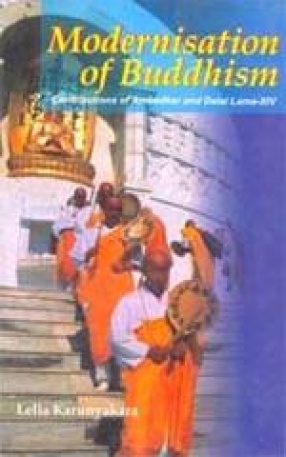The emergence of Buddhism in 6 B.C. was the first social revolution in the history of India. The conversion of Ambedkar to Buddhism on 14 October 1956 was the revival of those revolutionary ideals. The presence of the Dalai Lama XIV in the land of the Buddha symbolizes with the continuity of revolutionary ideals propounded by Gautama Buddha. Equality, social justice and democracy are the three principles, with which the whole revival movement initiated by Ambedkar and Dalai Lama XIV, associated. It is a study on the continuity of the revival legacy of Ambedkar and the Dalai Lama XIV. Modernisation of Buddhism as a religion and philosophy is the precondition for the revival. Historical inquiry has been made in the present study to understand the prerequisites for the revival of Buddhism. Modernisation has been identified as the first and foremost prerequisite for the purpose. The present work is based on interdisciplinary approach for identifying the content and nature of the modernisation process occurred in Buddhism. The study rightly identified the features of post-modernism in the understanding of Ambedkar and Dalai Lama about Buddhism. Post-modern roots are the result of modernising the tradition. The tradition of Buddhism have been modernised by Ambedkar and Dalai Lama XIV which in turn resulted in producing synthesis called post-modern understanding of Buddhism, i.e., Dalit Buddhism or Adi Buddhism. The study touched the fringes of post-modern understanding of Buddhism, however, left it for further research. The present study mainly deals with the contribution of Ambedkar and Dalai Lama XIV to modernise the Buddhist tradition.
Modernisation of Buddhism: Contributions of Ambedkar and Dalai Lama-XIV
In stock
Free & Quick Delivery Worldwide
reviews
Bibliographic information
Title
Modernisation of Buddhism: Contributions of Ambedkar and Dalai Lama-XIV
Author
Edition
1st ed.
Publisher
ISBN
8121208130
Length
284p., References; Appendix; Bibliography; Index; 23cm.
Subjects





There are no reviews yet.